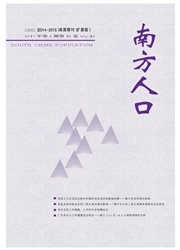

 中文摘要:
中文摘要:
利用北京、辽宁、浙江、广东、四川与陕西2002年和2009年的城镇住户调查数据对家庭教育支出行为的决定因素和家庭教育支出的影响机制进行了实证检验与扩展分析。结论表明;(1)2002年家庭教育总支出的收入弹性大于2009年的家庭教育总支出收入弹性,且2002年的收入弹性大于1;家庭教育支出行为与户主年龄呈现显著的'U'型关系,且女孩比男孩获得更多的家庭教育资源;(2)各分项教育支出中,培训费支出受家庭可支配收入的影响最大;(3)城市人口规模与家庭教育支出之间呈现正相关关系;(4)总体而言,妻子对家庭教育支出的影响显著大于丈夫的影响,这主要体现在受教育年限方面。
 英文摘要:
英文摘要:
An empirical tests and extended analysis of the determinants and mechanism of household education consumption behavior are made based on the data from the Urban Household Survey of six provinces and the municipality in 2002 and 2009. The findings show that:1.The income elasticity of household education expenditure in 2002 is greater than 1 and greater than that in 2009, The relationship between household education spending and the age of household head exhibits a"U-type" shape and girls possess more education resources than boys; 2. Among all sub-item consumption, training fee is more likely to be affected by household's disposable income;3.The urban population size correlates positively with household education expenditure; 4. the wife's influence on household education expenditure is greater than husband's especially in the children's education years.
 同期刊论文项目
同期刊论文项目
 同项目期刊论文
同项目期刊论文
 期刊信息
期刊信息
